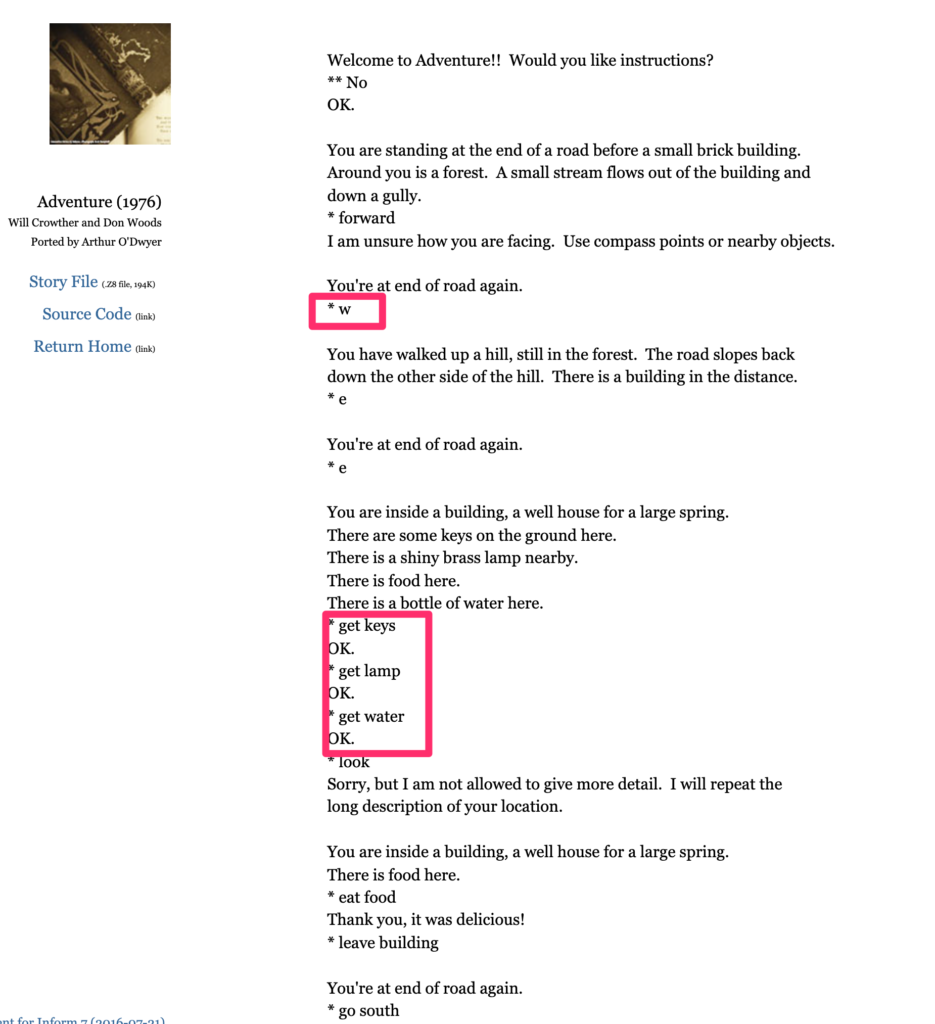Back in Apple II+ days when I first began exploring the educational potential of “personal computers”, I wanted to explore the potential of these devices in education. I learned to program and worked with students to develop activities (games) to evaluate and develop reading skills. Our initial efforts were based on text-based tasks that required comprehension skills. An important influence was text-based adventure games.
I was reminded of this phase of my career when I was listened to a podcast today and heard George Broussard describe his early experiences programming and writing adventure games. He suggested that his original game (Arctic adventure) could still be played in emulation online.

Anyone interested in adventure games needs to go back to the original – Crowther and Woods (1976) Adventure. Again, this game is available online via an emulator.
Adventure games are games of exploration based on the issuing of commands (in text) in reaction to the text that appears on the screen. The commands influence the flow and successful advancement within the game. There are usually simple instructions, but a reasonable strategy is just to try things – e.g., go west, open door, take lantern. Typically, you collect objects in order to solve problems that allow you to advance in the game. The following from the opening of Adventure should give you the idea.

I ended up writing a different type of text-heavy game called Master Detective requiring the player (detective) to identify errors in the testimony of potential criminals during interrogation. I was interested in comprehension monitoring and this capacity to notice failures of comprehension was studied in research settings by having readers attempt to identify different types of errors (factual errors, cross-sentence inconsistencies) as a proxy for the type of errors that occur naturally when readers attempt to comprehend. I turned this research task into a game with a rationale for such a task.
With adventure games, I got as far as collecting data on the number of moves it took good and struggling readers to advance through games of different levels of complexity.
I continue to think the genre offers potential as a motivated reading activity.

You must be logged in to post a comment.